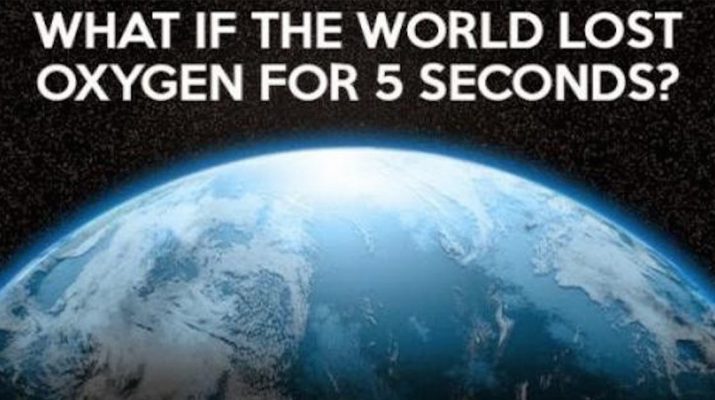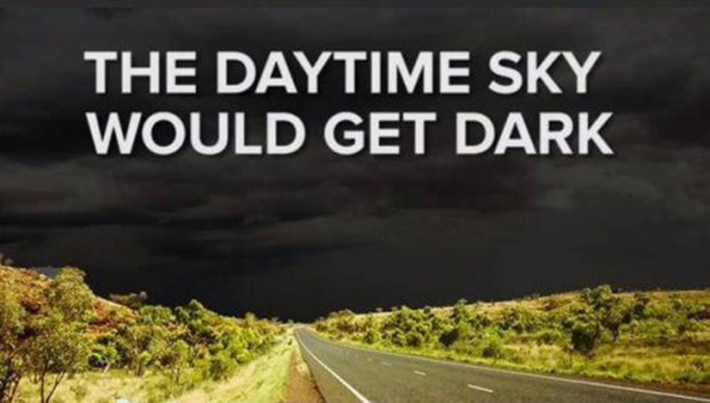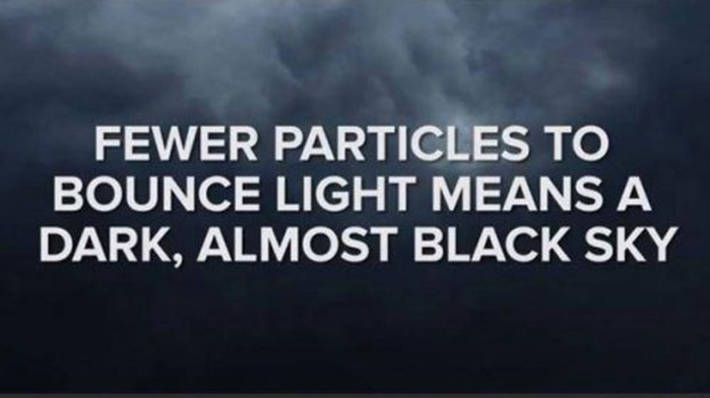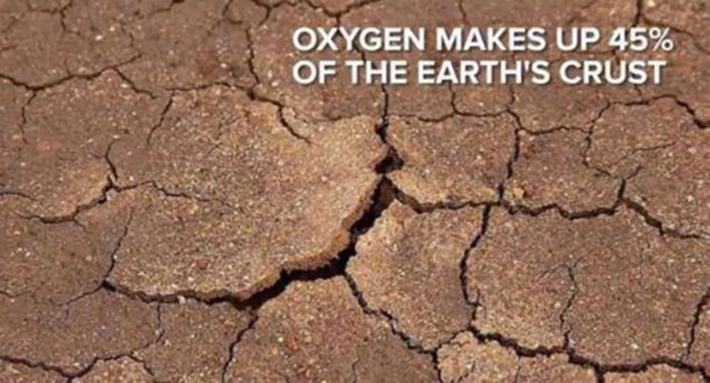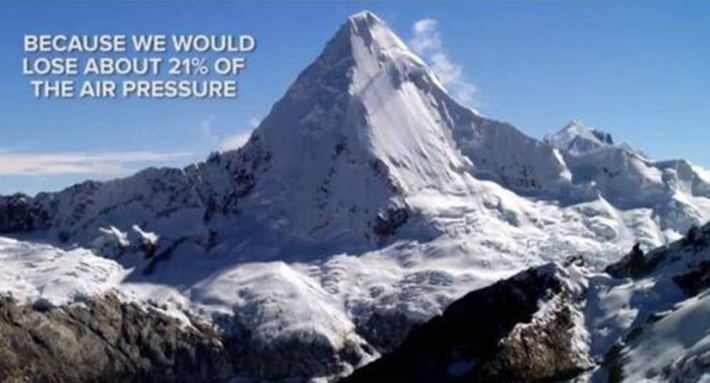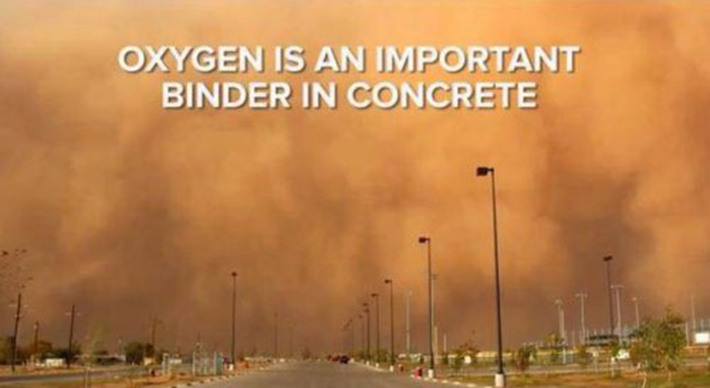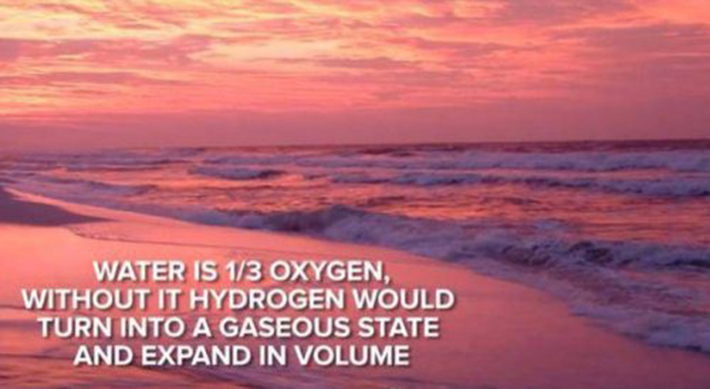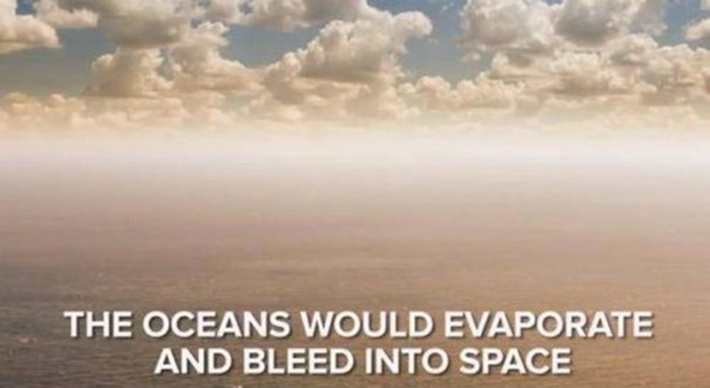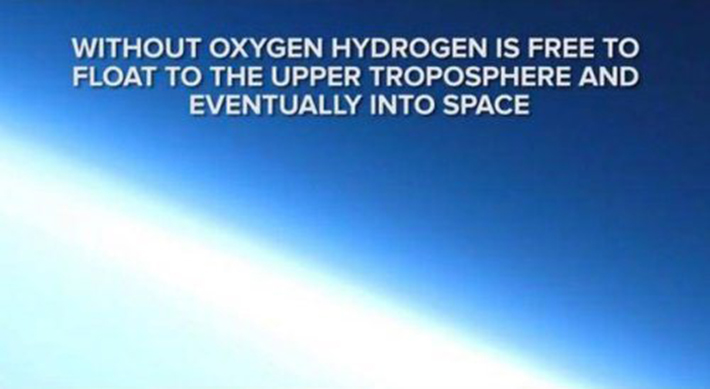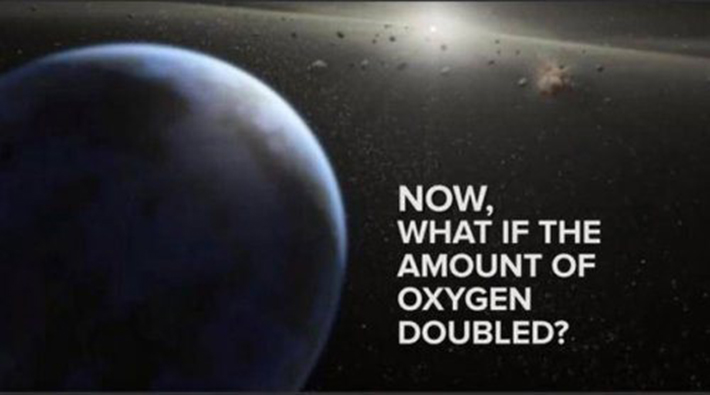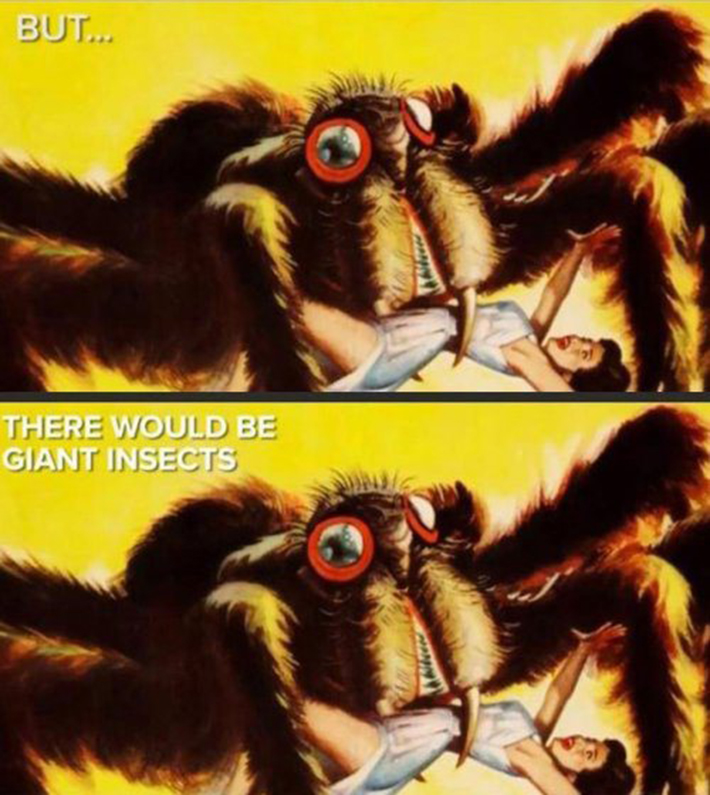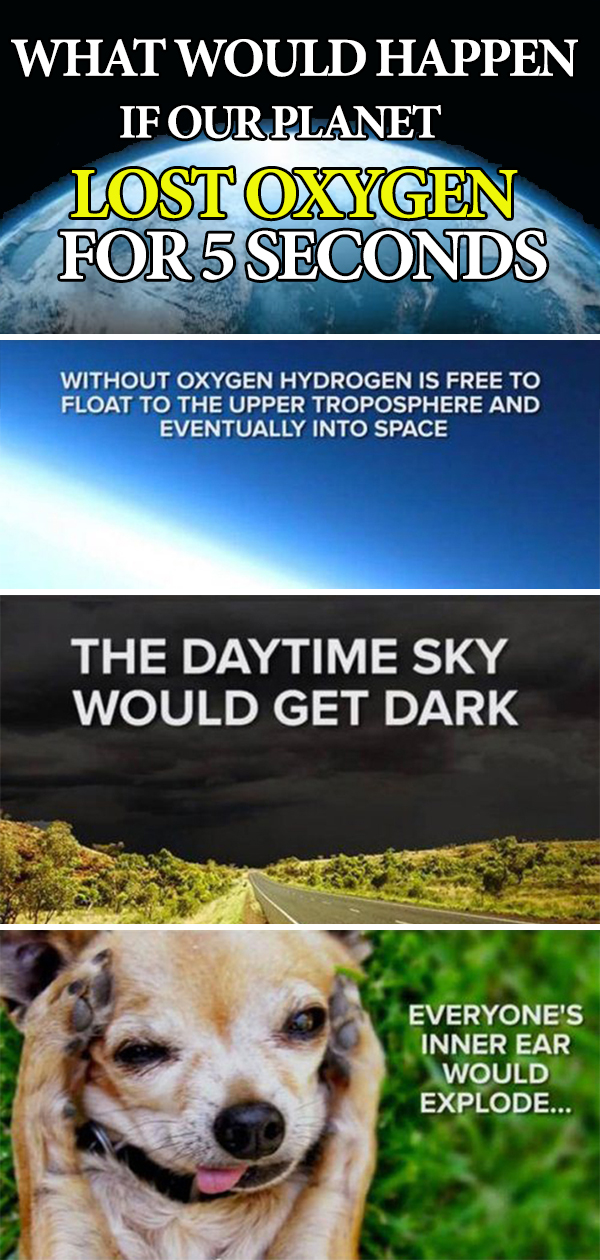Try holding your breath for five seconds. No big deal, right? Well, that’s us. We take oxygen for granted every day thinking, hey, it’s always gonna be there. But have you ever wondered what if all of a sudden, poof – oxygen’s gone. Even for just 5 seconds, what happens then?
Our lungs might be fine in that short a time frame, but the rest of the planet?
Not so much. Here’s what would happen if the world lost oxygen for just 5 seconds:
Everyone At The Beach Would Get Sunburns.
If you happen to be relaxing at the beach at the time expect a severe sunburn. The ozone layer, our protection against the sun’s UV rays, is made of oxygen. Three oxygen atoms that have bonded to create ozone. Take away the oxygen, and the Earth would get extremely hot. There would nothing protecting us from the sun’s UV rays.
Ozone is molecular oxygen, and blocks the majority of UV light. Without it we are toast.
The Day-Time Sky Would Get Darker.
The sky would be completely dark. Before it hits the earth, light from the sun bounces off multiple particles in the air. Without oxygen in the atmosphere, there are less things to bounce off, and the sky will appear dark… almost black.
With fewer particles in the atmosphere to scatter blue light, the sky would get a bit less blue and a bit more black.
All Pieces Of Untreated Metal Would Instantly Spot Weld To Each Other.
All pieces of untreated metal would instantly spot-weld to each other. This is one of the more interesting side effects. The reason metals don’t weld on contact is they are coated in a layer of oxidation. In vacuum conditions, metal welds without any intermediate liquid phase.
Everything Above Ground Would Immediately Go Into Free Fall.
Oxygen makes up about 45% of the Earth’s crust and mantle, there is suddenly a lot less “stuff” beneath your feet to hold everything up.
Without oxygen, the Earth’s crust would completely crumble. Without oxygen involved in the surface, there wouldn’t be much left. The crust would crumble, and continue to crumble until there’s nothing left, sending you and everyone on the planet into a free-fall.
Everyone’S Inner Ear Would Explode.
Because we would lose about 21% of the air pressure in an instant (from sea level to 2000m elevation), so expect some serious hearing loss.
Every Building Made Out Of Concrete Would Turn To Dust.
Oxygen is an important binder in concrete structures (really, the CO2 is), and without it the compounds do not hold their rigidity.
Every living cell would explode in a haze of hydrogen gas. Water is 88.8% oxygen; without it the hydrogen turns into gaseous state and expands in volume.
The Oceans Would Evaporate And Bleed Into Space.
As oxygen disappears from the oceans’ water, the hydrogen component becomes an unbound free gas. Hydrogen gas, being the lightest, will rise to the upper troposphere and slowly bleed into space through Atmospheric escape.
But if the amount of oxygen DOUBLES, we would…
Take a deep breath. We take 23,000 breaths a day; trying to get oxygen to our brain and cells. Oxygen is essential to our survival. But it’s a only small percentage of what’s in the air we breathe. So what if there was more of it? What would happen?
Would it cause giant insects to roam the streets? Would everything catch fire? Would it make you super human?
These are just a few of the things we’d be dealing with if the Earth’s atmosphere had double the amount of oxygen it has today. What else would happen?
Here’s what would happen if Earth’s Atmosphere had double the amount of oxygen.
Get Better Gas Mileage
Oxygen in fuel improves engine performance by reducing the amount of nitrogen entering the engines, which causes them to heat up. Less heat would mean improved performance, as well as lower fuel consumption levels. This would definitely lead to better and more efficient industries and automobiles in the world.
However, the greater combustion of fuel will release more exhaust gases, eventually crippling the atmosphere.
Effects On Animals
Spiders, roaches and many other creepy crawlers you mat have dreaded all your life will grow even larger in size. These tiny beings breathe through tiny tubes called trachea, so with more oxygen entering these tubes, their bodies will eventually expand and grow in size. Dragonflies would grow to the size of hawks, while spiders would have a large enough appetite enough to gobble down pigeons.
However, you won’t have to worry about your safety from these monsters, as you will be able to outrun them all. Due to the availability of more oxygen to the lungs, with every breath you take, your stamina would increase tremendously.
Oxygen-rich blood would pump through your veins, fueling your muscles with energy, while better blood circulation will give you greater agility and concentration. Speed records of athletes would improve drastically, shattering previous world records so new ones could be set in the oxygen-rich future.
Neutrophils are a type of white blood cell that forms a critical part of our immune system by using oxygen to fight disease. These cells will have an increased capacity to fend off harmful viruses and bacteria, due to the higher availability of oxygen, leading to fewer and less frequent diseases and sicknesses.
It seems pretty fun up to this point, but just wait until this excess oxygen starts weighing you down. Too much oxygen can lead to something called ‘oxygen toxicity’. The excess oxygen at a higher partial pressure (concentration and partial pressure are directly proportional) will cause rampant harmful oxidation in your cells causing them to die.
Increase in oxygen will also speeden up metabolism. This could cause over-exertion of your bodily organswill lead to exhaustion and fatal consequences for your body, literally dropping you in your tracks. Deaths from exhaustion will be more common than death from the disease.
Effects On Plant Life
In the event of doubling the oxygen levels on Earth, the most significant changes would be the speeding up of processes like respiration and combustion. With the presence of more fuel, i.e. oxygen, forest fires would become more massive and devastating. Wet vegetation would not provide protection either. Anything and everything would burn more easily.
Wildfires would be a common site, with double the oxygen present, fueling the fire
At the same time, processes like photosynthesis would be sedated due to lower concentrations of carbon dioxide in the atmosphere. Green vegetation would give way to a more prehistoric landscape, thronged with mosses and mushrooms.
Effects On Mountainous Regions
For all the backpackers and wanderers who dream of castles beyond the clouds, or of living on the peaks of the highest mountains, but the low oxygen levels there don’t make life easy, here’s some good news. With double the oxygen levels in the atmosphere, breathing problems would be the least of their problems, and living at higher altitudes would no longer pose any real problem.
Trekking mountains would be an easy task with no breathing problems to trouble you. (Photo Credits: Pxhere)
This would soon lead to taking over mountainous regions and making them into habitable zones, ultimately deteriorating these natural formations and soil quality. Ice cover on mountain peaks would reduce significantly with plant and animal life thriving there.
Effect On Earth’S Atmosphere
With increased oxygen levels, the air density in the atmosphere would also increase. This, in turn, would enable aeroplanes, gliders, parachutes and birds to fly higher up in the sky and stay in flight for longer periods. A higher oxygen concentration would lead to a thicker atmosphere, which would scatter more sunlight, make the sky look bluer and lower the air temperature.
Birds can take longer and higher flights in a denser atmosphere.
Conclusion
As history shows us, bad outcomes often follow good situations. The perks of having twice the amount of oxygen on Earth are intriguing, but it would be at the cost of a shorter life span and a more unpredictable planet.
We should count ourselves lucky that our planet is the perfect mix of just the right amount of everything. 21% oxygen might seem pretty low when considering the lives of billions hanging in the grasp of this dephlogisticated air, yet you now know how fatal it could have been if the universe had decided to write a different recipe for our planet!
Source: atchuup scienceabc

